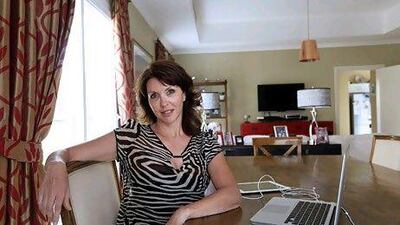Louise Fichera's hope was that launching a micro-business in Dubai would feed her entrepreneurial spirt and provide the freedom from having to work full-time for somebody else.
She assumed her talents in marketing and business development would help grow Pink Peppercorn - as she was going to name her company - while the venture produced locally sourced dips and spreads free of preservatives and gluten.
But getting Pink Peppercorn to grind into life has proved difficult.
One free zone in Dubai offered to provide her a licence for between Dh20,000 (US$5,444) and Dh30,000, only to then tell her - 14 months later - that she would have to set up a limited liability company (LLC) instead. The cost for that, once mandatory office rental fees were wrapped in, jumped to between Dh65,000 and Dh85,000, says Ms Fichera. "The business is now on hold," she adds.
And hers is not a unique story.
Other women in the Emirates have given up on entrepreneurial ventures after being told they must rent out corporate office space instead of being allowed to start up a micro-business for much less money from home. Some have even taken to holding unofficial product parties where they sell items they make, such as jewellery, dresses or jars of jam.
"What happens is they're driven underground," says Fiona Thomas, a freelancer in Dubai who helps individuals get businesses started in the emirate.
"There's a lot of women who could be beneficial to the country's finances, and could also [have] a good business," she adds.
UAE nationals are allowed to start micro-businesses from home, says Ahmed Ibrahim, a representative who helps handle business licensing at Abu Dhabi's Department of Economic Development (DED).
But expatriates are required to form an LLC and rent out office space, he adds.
Dubai's DED did not respond to questions for this article but other business experts from Dubai say little-known freelance permits may be a solution for some women.
These allow people to work from shared "hot-desk" facilities, which often include access to computers and phone lines - depending on who gets there first on any particular day or night.
Ms Thomas says her freelance permit cost about Dh30,000 for the first year then Dh14,500 upon renewal, with about Dh9,000 allocated to rental fees.
"A lot [of women] don't know about it," says Ms Fichera.
Yet, she warns, not everyone is eligible for such a permit. Also, it is only available through certain jurisdictions such as Dubai's Media City and Internet City.
Some women have preferred to dabble in freelance work without a permit, part-time, while raising their families.
One such is Renu Shenoy who has, from the comfort of her own home, created a trial website to act as a portfolio to showcase online marketing work that she has done. Keeping busy part-time helps keep her career-building skills on track, Ms Shenoy says, while she cares for her son, who turns two years old next month.
Ms Shenoy aims to return to the workforce once he starts going to school, although she says it is unlikely she will formalise her activities as a full-fledged micro-business during that time.
"I haven't registered because for registering you need an office," she says.

